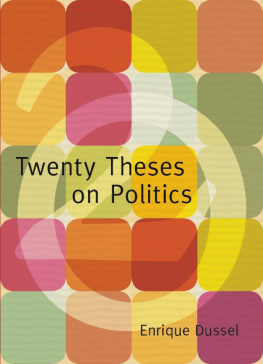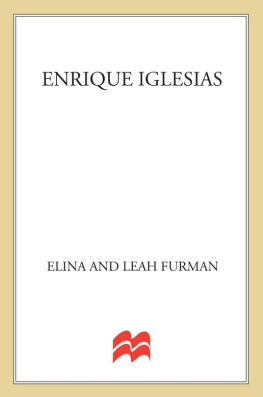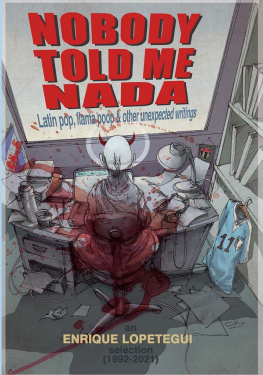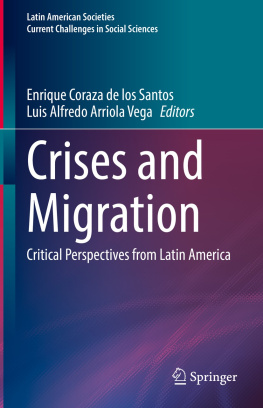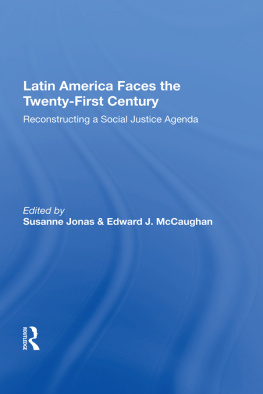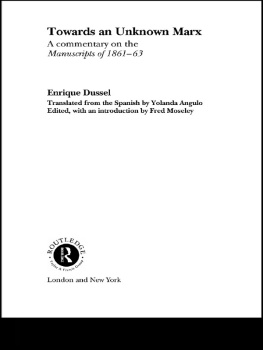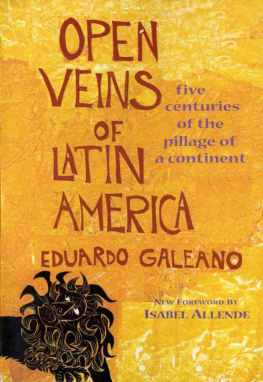Enrique Dussel - Twenty Theses on Politics (Latin America in Translation)
Here you can read online Enrique Dussel - Twenty Theses on Politics (Latin America in Translation) full text of the book (entire story) in english for free. Download pdf and epub, get meaning, cover and reviews about this ebook. year: 2008, publisher: Duke University Press, genre: Politics. Description of the work, (preface) as well as reviews are available. Best literature library LitArk.com created for fans of good reading and offers a wide selection of genres:
Romance novel
Science fiction
Adventure
Detective
Science
History
Home and family
Prose
Art
Politics
Computer
Non-fiction
Religion
Business
Children
Humor
Choose a favorite category and find really read worthwhile books. Enjoy immersion in the world of imagination, feel the emotions of the characters or learn something new for yourself, make an fascinating discovery.
- Book:Twenty Theses on Politics (Latin America in Translation)
- Author:
- Publisher:Duke University Press
- Genre:
- Year:2008
- Rating:3 / 5
- Favourites:Add to favourites
- Your mark:
- 60
- 1
- 2
- 3
- 4
- 5
Twenty Theses on Politics (Latin America in Translation): summary, description and annotation
We offer to read an annotation, description, summary or preface (depends on what the author of the book "Twenty Theses on Politics (Latin America in Translation)" wrote himself). If you haven't found the necessary information about the book — write in the comments, we will try to find it.
Twenty Theses on Politics (Latin America in Translation) — read online for free the complete book (whole text) full work
Below is the text of the book, divided by pages. System saving the place of the last page read, allows you to conveniently read the book "Twenty Theses on Politics (Latin America in Translation)" online for free, without having to search again every time where you left off. Put a bookmark, and you can go to the page where you finished reading at any time.
Font size:
Interval:
Bookmark:

A Book in the Series
LATIN AMERICA IN TRANSLATION / EN TRADUCCIN / EM TRADUO
Sponsored by the DukeUniversity of North Carolina Program in Latin American Studies
GEORGE CICCARIELLO-MAHER
EDUARDO MENDIETA
DUKE UNIVERSITY PRESS
DURHAM AND LONDON 2008
2008 DUKE UNIVERSITY PRESS
ALL RIGHTS RESERVED.
PRINTED IN THE UNITED STATES OF AMERICA ON ACID-FREE PAPER
DESIGNED BY JENNIFER HILL
TYPESET IN ADOBE JENSON PRO BY KEYSTONE TYPESETTING, INC.
LIBRARY OF CONGRESS CATALOGING-IN-PUBLICATION DATA APPEAR ON THE LAST PRINTED PAGE OF THIS BOOK.
THE LIBERATION OF POLITICS: ALTERITY, SOLIDARITY, LIBERATION
Historical periods are sometimes referred to by descriptive names such as the age of reason, the age of faith, the age of revolutions, the age of totalitarianism, the age of global wars, and so on. The prophets of neoliberal globalization, with their vision skewed by the shadow of events barely past, undoubtedly would like to call our times the age of the abolition of politics. Globalization is an ideology that would have the world surrender to a blind technological and economic drive. Globalization is a fetishizing way to represent for othersthose who cant represent themselves, as Marx and Spivak claimedthe present state of humanity primarily because it subordinates the political to the economic and the economic to the technological. The maps of globalization, drawn by the master cartographers of the Pentagon, the World Bank, the Deutsche Bank, Microsoft, and the International Monetary Fund, are utopias in which the space of the political is violently colonized and then abolished by monetary and legalistic imperatives. The political, or rather the spheres of the political, as Enrique Dussel points out in this book, is assimilated and subordinated to the management of investments, technological modernizations, and budgetary calculations. The political is thus translated into an algorithm that maximizes profits and returns on investments while minimizing costs by passing them off to future generations.
This mistranslation that legitimates the massive private accumulation of collective wealth, which is proportionally matched by generalized dispossession and impoverishment, is but an alchemy that turns what is most fundamentally humanthe politicalinto the most anti-human: thus the necrophilic love of profitpolitics as the expression of the lust for and the will to live off the humanturns into necropolitics (to use that most apropos expression by Achille Mbembe). The abolition of the political is thus the negation of human life, not just as naked existence but as collective, communitarian, dialogical, communicative freedom. Without others, without the other, there is neither ethics nor politics. Without others, without the other, there is no politics as the horizon of the possiblethe possibility of continued existence. It is this continued existence as coexistence, as surviving and flourishing with others, that is the source of the political. It is this politics that is being abolished by the profiteers of global war and neoliberal pillage. Against this necropolitics of neoliberal globalization, a politics of liberationa politics of life with others and for othersis proclaimed from below. It is this politics of life, and for life, that proclaims that politics is the proper vocation of the human being. It is this proclamation from below, from the victims of capitalism, imperialism, ecocide, and genocide, that gives us reason to pause and to affirm that ours will be the age of global politics, the age of the politics of alterity. Enrique Dussels Twenty Theses on Politics, originally published in Spanish in 2006, is the manifesto of this politics of alterity, a politics of life and for life, a politics from the underside of necrophilic globalization.
While this manifesto is brief, and almost telegraphic in its presentation, it is neither simple nor a mere exercise in oracular proclamation. Behind every paragraph stands decades of philosophical work as well as hundreds of pages of philosophical analysis. Dussel is unquestionably the best-known living philosopher from Latin America, and surely he is to have the most lasting effect on planetary thinking. His work, since its earliest formulations in the 1950s and 1960s, was avowedly articulated as a philosophy of liberation. In 1975 he published Philosophy of Liberation, which summarized a decade of work on what at the time he called a deconstruction of ethics and an ethics of Latin American liberation. Philosophy of Liberation articulated not just a project for the liberation of philosophy but also an ethics and politics of liberation. Through the late 1970s and early 1980s, Dussel dedicated himself to a reconstruction of Karl Marxs philosophical itinerary from that of a young Hegelian to a mature critic of political economy. This decade of philological, archival, and exegetical work at the Marx-Lenin Institute in Moscow yielded what some have called the most important reconstructive readings of Marxs political economy to be done in the last quarter of the twentieth century. Just as it was not possible to read Marx during the 1960s without the aid of Rosdolsky, Lukcs, and Marcuse, now it is no longer possible to go back to Capital without the aid of Dussels three volumes on Marxs manuscripts and drafts of that work. Yet Dussels work is not produced primarily in library halls or in the solitary reading rooms of archives and institutes; rather, it emerges from his pedagogy across the Americas and the world and from his continued and dizzying dialogues, debates, and encounters with other philosophers. Perhaps one of his most notorious encounters was with Karl-Otto Apel in a decadelong dialogue on the relationship between Dussels proposal for an ethics of liberation and Apels version of discourse ethics.
Two decades after his Philosophy of Liberation and his numerous books on Marx, Latin American philosophy, and contemporary philosophy, Dussel published one of his most important works, Ethics of Liberation in the Age of Globalization and Exclusion. This volume synthesized Dussels unique reading of Emmanuel Levinass ethics of alterity, with Dussels own Schellingian reading of Marx (which affirms that Marxs notion of living-labor is the central category in Capital) and with his new appreciation of procedural formalism, which he gained through his debates with Karl-Otto Apel. Ethics of Liberation is a strikingly original, prodigiously documented, staggeringly systematic and coherent work of moral philosophy, and it is, furthermore, unusual in its historical scope. The book opens disarmingly with an introduction subtitled Global History of Ethicities, which given its length could easily have been printed as a separate book with the title A World History of Ethical Systems. The rest of the book is divided into two parts: Foundations of Ethics and Ethical Critique, Anti-Hegemonic Validity, and the Praxis of Liberation. Ethics of Liberation is probably one of the most extensive, detailed, and wellargued systematic articulations of the principles of moral reasoning that is at the same time linked to a cosmopolitan, decolonized, post-occidentalist history of moral philosophy.
Enrique Dussels ethics of liberation argues that ethics has at its foundation a material momentthat is, it has to do with corporeal need. Ethics is grounded in practical truth, namely survival. But simultaneously it is entwined with the moments of what Dussel calls intersubjective validity and feasibility. The ethical has to do with our relations to others, and through those relations, our relations to ourselves, and thus it entails a series of principles of intersubjective solicitude and respect. At the same time, the aim of ethical acts must be within the horizon of the possible. The ethical is related to feasibility; what can be properly described as ethical is part and parcel of a possible act or action.
Font size:
Interval:
Bookmark:
Similar books «Twenty Theses on Politics (Latin America in Translation)»
Look at similar books to Twenty Theses on Politics (Latin America in Translation). We have selected literature similar in name and meaning in the hope of providing readers with more options to find new, interesting, not yet read works.
Discussion, reviews of the book Twenty Theses on Politics (Latin America in Translation) and just readers' own opinions. Leave your comments, write what you think about the work, its meaning or the main characters. Specify what exactly you liked and what you didn't like, and why you think so.

